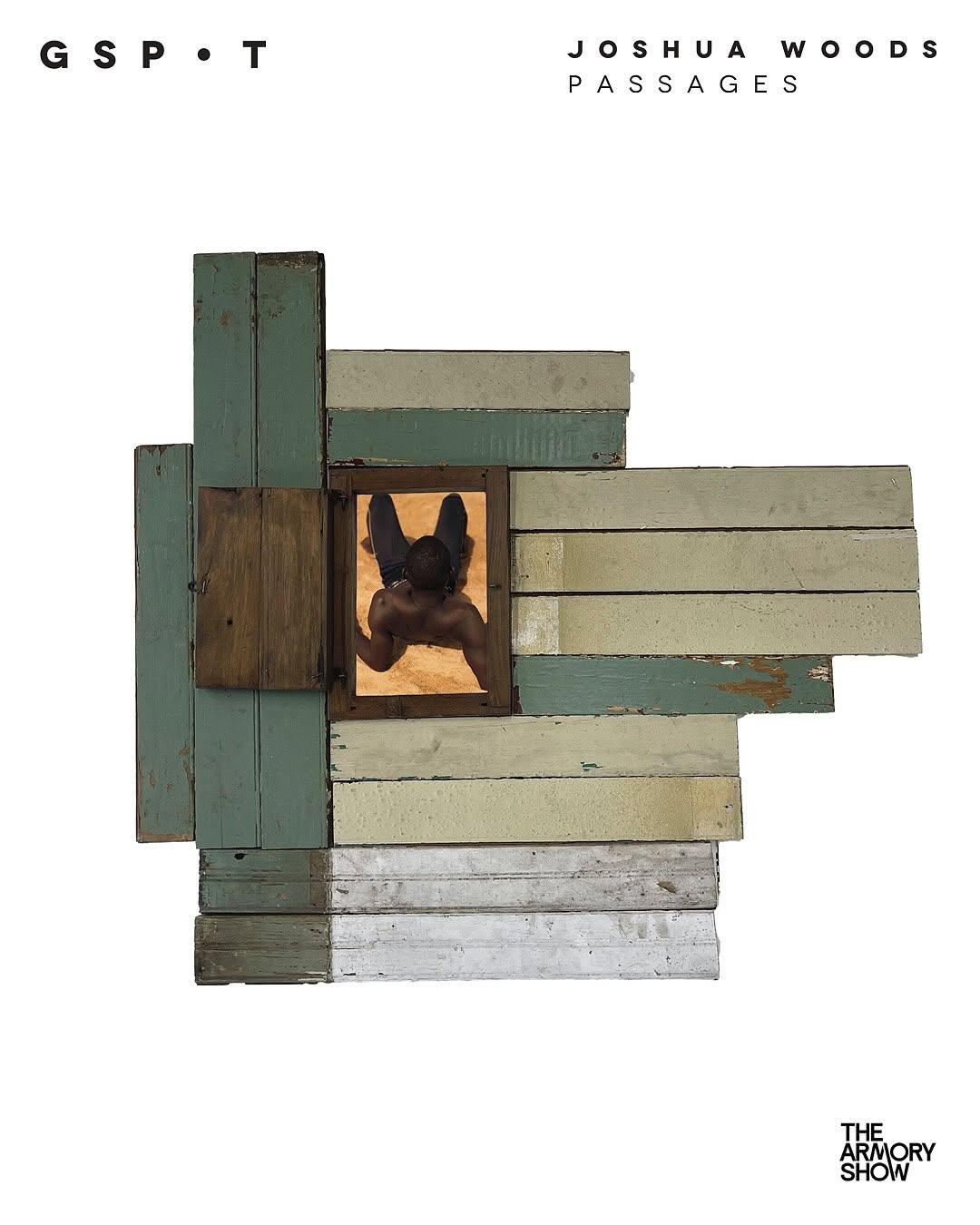“I love working with material that is already aged. That means it has been lived with, that spirits are already within the work. My grandfather used to make art out of hubcaps and steering wheels after his shifts at the Ford factory. I guess I picked that up from him.”

That lineage of Detroit ingenuity and Harlem imagination runs deep in Joshua’s practice. His series Passages, the one on view at the Armory, pulls from his travels across the African continent, pairing those photographs with salvaged textures that collapse time. One of the works, Passage #2, shows a young man reclining on the sand. The image feels like a portal, framed by wood that has already lived another life. It is both photograph and sculpture, memory and architecture, a moment resting inside something built to last.
The presentation was part of Gspot, curated by Jon Gray of Ghetto Gastro for The Armory Show, with a design by Muzi and USM Modular Furniture. The setting gave Woods’ work room to breathe, the aged wood and salvaged textures sitting comfortably inside a structure built with precision and intent.
Woods (b. 1986, Harlem) is a self-taught photographer and filmmaker who now splits his time between New York and Paris. He is an autodidact with the résumé to prove it: The New Yorker, i-D, Harpers Bazaar, Vogue, WSJ Magazine, and commercial campaigns for Gucci, Chanel, Nike, and more. His work resists neat categorization, moving between editorial, art, and photojournalism. One moment he is documenting Harlem. The next he is staging photographs that function like relics of the African diaspora. His practice has always been about refusing limits set by institutions, building his own canon from references that span music, politics, and culture high and low.
On the table at the booth, I picked up a text about the series that described it this way:
“For me, the journey is a form of time travel. It is passages and thresholds where the personal and the collective meet, where ancestry and movement hum together across generations.”
The language matched the energy of our conversation. Joshua was not performing theory. He was pulling from lived experience. Harlem to Dakar. Family history to found wood. Style to everyday survival.
“Look inward. Not outward. Find that voice inside. It is your compass. Mix it with your crazy, whatever crazy you have, and just go.”
Walking away from the booth, I understood Passages as both an exhibition and a philosophy. Joshua Woods is not only showing images of the past and present, he is charting a way forward.
— Amon Focus









